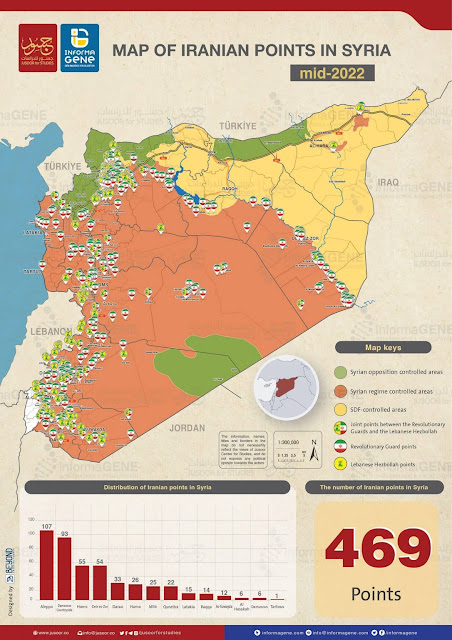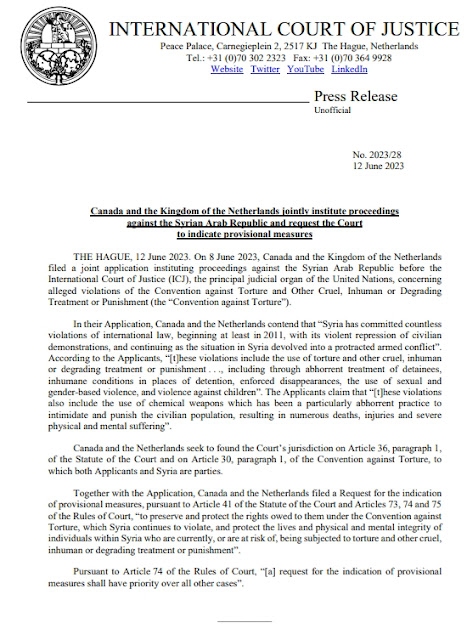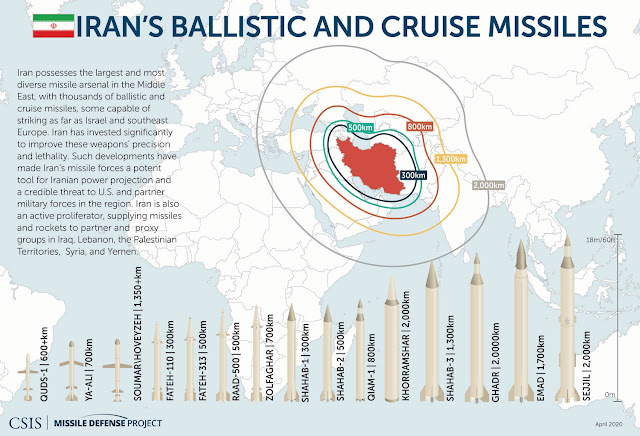News Concerning Middle East Reform
Headlines:
- Egypt: Authorities Intensify Crackdown on Muslim Brothers; Journalists Arrested
- Palestine: Hamas and Fatah Sign Accord
- Syria: Upcoming Elections
- Jordan: Parliament Approves New Municipalities Law; Debate Over Press Law
- Bahrain: Political Activists Arrested
- Saudi Arabia: Human Rights Watch Denied Access to Prisons
- UAE: Government Appoints Members of Advisory Council
- Qatar: Run-Up to Elections
- Morocco: Crackdown on Press
- Upcoming Political Events
Contents:
Egypt: Authorities Intensify Crackdown on Muslim Brothers; Journalists Arrested
In a continuation of the Egyptian government's crackdown on the Muslim Brothers, authorities referred the cases of 40 members arrested over the past two months to a military tribunal on February 6. Decisions by the military courts cannot be appealed; the authorities had not referred any Brotherhood members to a military tribunal since 2001. Among those facing trial on charges of money laundering and creating a militia is Khairat Al Shater, the second deputy to the supreme guide of the Muslim Brotherhood. The charges arise from military-like marches by students affiliated with the organization at Cairo's Al Azhar University in December during a protest against the rigging of student union elections. Between December 18 and January 14, Egyptian authorities arrested 23 senior members of the Muslim Brothers and at least 140 students. Click here for details.
The Muslim Brothers announced their proposals for constitutional reform—including setting a limit of a single five-year term for the Egyptian president—on February 14. The Brothers also proposed strengthening constitutional guarantees for judicial supervision of elections and for the freedom to form political parties. For more details in Arabic, click here.
Al Jazeera journalist Howaida Taha was detained for 24 hours on January 13 while producing a documentary about police torture in Egypt and charged with “practicing activities that harm the national interest of the country” and “possessing and giving false pictures about the internal situation in Egypt that could undermine the dignity of the country.” Judicial authorities initiated trial proceedings on January 27. Click here for details.
Blogger Abdul Kareem Nabil Suleiman, imprisoned since November 2006, is facing a possible 11-year prison sentence on charges of inciting hatred of Islam, defaming the president, and spreading rumors likely to disturb the peace. An Alexandria court announced that the sentence will be delivered on February 22. Click here for details. According to the Egyptian Organization for Human Rights, 45 journalists in Egypt face court cases.
Egypt's official National Human Rights Council called for canceling the state of emergency, amending the penal code, and improving the treatment of detainees in it third annual report (Arabic text). The council received 5,826 complains from citizens in 2006 about arbitrary detention and the practice of torture.
Palestine: Hamas and Fatah Sign Accord
After months of political deadlock, Hamas and Fatah signed a power-sharing accord on February 8 under which Hamas will head a coalition government that will “respect” past peace agreements with Israel. Prime Minister Ismail Haniyya of Hamas has to form a new coalition government within five weeks with nine Hamas members (including the prime minister position), six Fatah members, and four members from other factions. The vital post of interior minister, which controls the security forces, will go to an independent because both groups were reluctant to see the other faction hold the ministry. Hamas must propose the candidate for approval by Abbas. Independents will also fill the foreign ministry and planning ministry posts. Clashes between Hamas and Fatah gunmen have killed 130 Palestinians since May and cease-fires have repeatedly broken down.
Syria: Upcoming Elections
In light of the parliamentary elections scheduled for April, on January 3 Syrian President Bashar Al Assad approved an amendment (Arabic text) to the 1973 electoral law that includes strict regulations on campaign financing. The new law prohibits candidates from providing “services and financial assistance” prior to elections, limits campaign spending to 3 million Syrian pounds (US$57,466), and obligates candidates to use an accountant to supervise expenditures during the election campaigns. The legislative elections are also expected to operate under a new political parties law which has not yet been passed. The draft law requires that new parties be “allied to, created by, or friends of the Baath” and that party founders be over 35 years old, have no criminal record, and be proven supporters of the Baathist March 8 Revolution. Political parties cannot be based on religious, sectarian, or tribal identities and cannot have operated before 1963 (only the Baath Party, the Syrian Social Nationalist Party, and the Communist Party are exempted from the last restriction). According to the draft law, the decision to grant a new party a license will be made by a committee that includes the head of the Shura Council, the ministers of justice and interior, the minister of state for people's assembly affairs, and three independent judges.
The presidential referendum whereby all eligible Syrian voters will be called upon to give their confidence to Assad for a second seven-year term is scheduled to take place at the end of May.
Municipal elections—the first under the new local administration law introduced in September 2005— will be held in August. The new law abolishes the “closed lists” system in existence since 1971 under which Syrians voted for candidates for provincial councils from a list set by the National Progressive Front, the ruling coalition of parties overwhelmingly dominated by the Baath Party. The law, however, continues to allow the cabinet, headed by the president, to appoint provincial governors by decree.
Jordan: Parliament Approves New Municipalities Law; Debate Over Press Law
The Jordanian parliament's lower house approved a new municipalities law on February 4 under which the mayors and councils of all municipalities will be elected, except in Amman where half the members of the council will continue to be appointed by the government. Under the 2001 law, all mayors and half of the council members in all municipalities were appointed. The lower house rejected an article that would have allowed the government to appoint municipalities' general managers. The law also includes a 20 percent quota for women in the council seats, allows joint membership in the parliament and municipal councils, and reduces the age of eligible voters from 19 to 18 years. If the law is approved by the senate and the king, new elections must be conducted within six months.
Parliament is also debating a controversial draft press law, criticized by Jordanian journalists and press freedom organizations for allowing the imprisonment of journalists for alleged offenses related to their writing.
Bahrain: Political Activists Arrested
Bahraini authorities arrested three rights activists on February 2: Hassan Mushaima, the secretary general of the Movement for Liberty and Democracy (Al Haqq); Abdul Hadi Al Khawaja, head of the Bahrain Center for Human Rights (BCHR); and independent activist Shaker Abdul Hussein. They were released without bail the same day after rioting in Shiite areas. The three are to be charged with "promoting change to the political system through illegitimate means, inciting hatred of the political system, agitation, and harming the public interest.” Mushaima and Al Khawaja are outspoken critics of the government and have been jailed in the past for lengthy periods because of their political activities. Al Haqq and the BCHR are banned by the Bahraini government. Six political societies including Al Wefaq National Islamic Society, the largest political society and main opposition group, condemned the arrests in a joint statement on February 4. Click here for details
Political activists Muhammad Said Al Sahlawi and Hussein Abdul Aziz Al Habshi, arrested on November 16, were sentenced to 6 and 12 months in prison respectively for possession of leaflets calling for the boycott of parliamentary and municipal elections in November 2006. The public prosecutor charged them under articles 160, 161, and 168 of the Bahraini Penal Code, which criminalize the dissemination and possession of materials that could “damage the public interest.” Click here for details.
Saudi Arabia: Human Rights Watch Denied Access to Prisons
During its first significant fact-finding mission in Saudi Arabia , the New York-based Human Rights Watch (HRW) was denied access to the country's detention facilities on December 18, 2006. HRW claims it was given numerous assurances from senior government officials that such visits could take place during the mission. Click here for details.
UAE: Government Appoints Members of Advisory Council
The United Arab Emirates government appointed 20 of the 40 members of the Federal National Council (FNC) on February 4, including eight women. The other 20 members were elected indirectly in December 2006 for the first time in the country's history. The government selected 6,689 voters (including 1,189 women) that were allowed to run and cast votes. Election officials stated they envisage universal suffrage for nationals in four years and an expansion of the council's role to include more oversight powers. The FNC currently lacks legislative powers. Click here for a list of FNC members.
Qatar: Run-Up to Elections
Elections to Qatar's 29-member Central Municipal Council will be held on April 1, according to a February 4 decree by the emir Sheikh Hamad bin Khalifa Al Thani.
Qatar is also set to hold its first legislative elections this year after the Ministry of Interior formed an electoral commission, finalized voter lists, and delineated constituencies. Qatar's constitution, approved in an April 2003 popular referendum, creates a legislative body with 30 members elected by universal suffrage and 15 appointed by the emir. Elections were initially planned for mid-2005 but postponed due to alleged problems in the voter lists. Currently Qatar only has an appointed council with a limited advisory role. According to the constitution, the legislature will have three main powers: to approve (but not prepare) the national budget; to monitor the performance of ministers through interpellations and no-confidence votes; and to draft, discuss, and vote on proposed legislation, which becomes law only with the vote of a two-thirds majority and the Emir's endorsement.
Morocco: Crackdown on Press
Driss Ksikes, editor of the independent weekly Nichane, and reporter Sanaa Al Aji were found guilty of denigrating Islam under Article 41 of Morocco's Press and Publication Law after they published an article analyzing popular jokes. A Moroccan court on January 15 fined Ksikes and Al Aji 80,000 dirhams (U.S. $9,300) and sentenced them to suspended three year prison terms that could be imposed if they were convicted of a future offense. Prime Minister Driss Jettou banned Nichane on December 20. The court's decision effectively extends the closure for another two months. Click here for details.
The Moroccan newsweekly Le Journal Hebdomadaire remains under heavy pressure almost a year after an appeals court upheld the sentence in a defamation suit, ordering the editor Abu Bakr Jamai and reporter Fahd Al Iraqi to pay 3 million dirhams (US$354,000) in damages to Claude Moniquet, head of the Brussels-based security think tank European Strategic Intelligence and Security Center. Jamai resigned on January 18 after Justice Ministry officials gave him a week to come up with the fine, the largest in Moroccan history. Click here for details.
Upcoming Political Events
- Syria: Legislative Elections, April 2007; Presidential Referendum, May 2007; Municipal Elections, August 2007.
- Qatar: Municipal Elections, April 1, 2007; Parliamentary Elections (Date not set)
- Algeria: Legislative Elections, May 2007.
- Jordan: Legislative Elections, June 2007.
- Morocco: Legislative Elections, September, 2007.
- Oman: Legislative Elections, October 2007.
-------------------------------------
Nassim Yaziji's Neo-Internationalism
Nassim Yaziji's Articles
-------------------------------------


